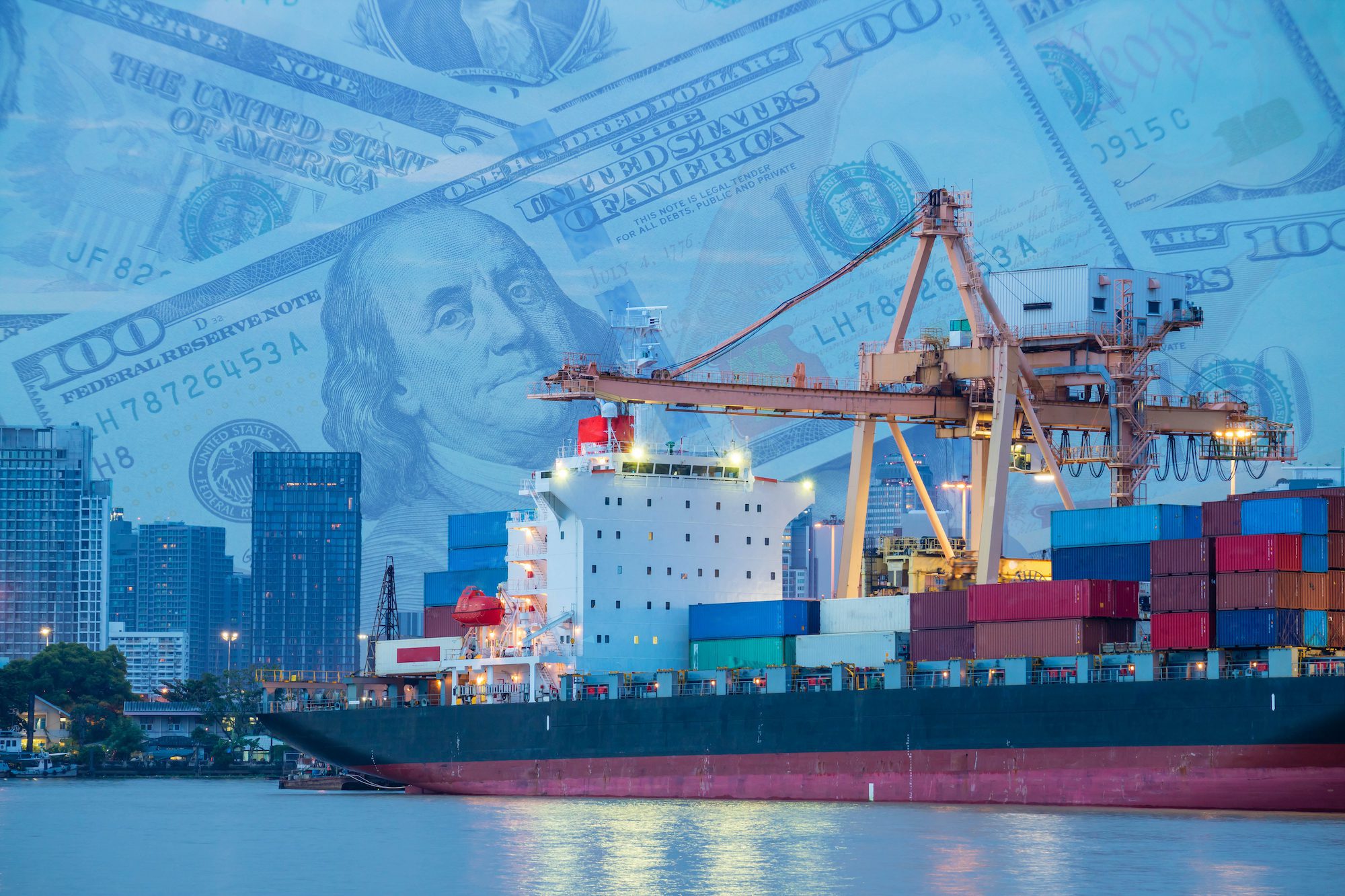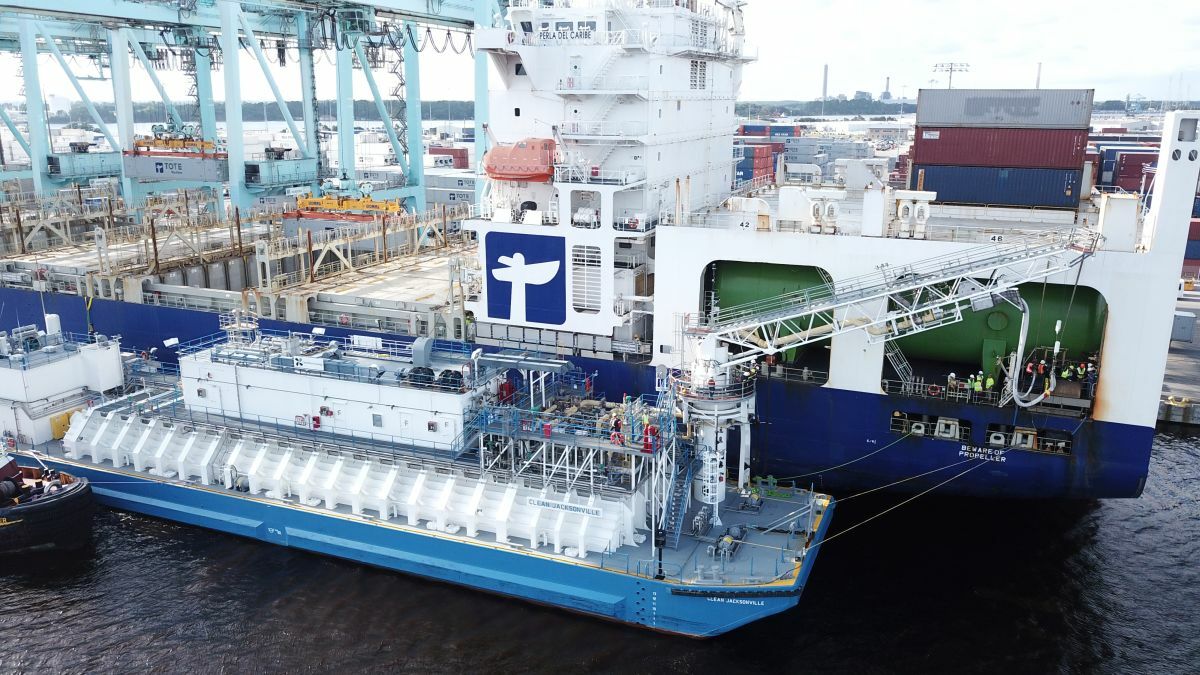Perhaps the best quote of the Connecticut Maritime Association (CMA) conference sessions covering maritime finance came from one of the panels, with the catchy (maybe “kitschy” is a better word) title, “Finance as a tool for environmental good“.
Session moderator, Kevin Kilcullen, an Advisor to International Seaways (NYSE:INSW, which recently bought out Diamond S, where he had a top finance role…real finance), declared that “I will tell you in advance that nobody on the panel actually came up with that name.” Its title notwithstanding, this was an incredibly informative and highly relevant discussion featuring top level executives on the front lines of allocating, and sourcing capital for shipping projects.
During the hour-long session, the participants presented a happily honest view of how vessel finance is working, at a time that the industry faces a wave (maybe an “onslaught”) of talk about Environment, Social and Governance (ESG) with new regulations coming, and definitely extreme uncertainty by any definition of the word.
From the point of view of one of the world’s leading maritime banks, DNB’s top shipping man in the U.S., Evan Uhlick, who participated virtually, talked about a bifurcation between companies on the “right side of good” (i.e. taking real actions to reduce emissions and move towards lower carbon intensities of their fleets’ operations), and those on the wrong side, as the industry moves towards an energy transition.
The bottom line, according to Mr. Uhlick, is that: “Those companies not on the right side of good…are not going to get capital.” He stressed that such concerns were not limited to banks, which might give small discounts in their margins on projects where emissions are being reduced; rather, all parts of the capital structures had sensitivity to companies’ efforts to reduce emissions.
The costs of moving toward the good side are significant. Financier Paul Leand, a Partner at investment boutique AMA Capital (and also Chairman of the Board at listed drybulk company Eagle Bulk Transport, NASDAQ:EGLE) suggested that the environmental discussion “…is largely an issue for the public companies right now…” He said that “This is an industry that in any given year, struggles to return capital to its lenders… and then on to shareholders” and that “any of these initiatives- they take time, and they are expensive…”
In discussing EGLE, where he said “we are trying to do whatever we can to decarbonize…” Specifically, he told attendees that “All the initiatives that we have really embraced…revolve around business decisions that you otherwise would make,” citing better propellers and better coatings, and he suggested that finance costs would see reductions of “about five basis points on a loan that was overpriced to begin with.” He acknowledged that the industry has made some progress and moved in the right direction, but opined that: “we are still far away from more substantial changes, because, at the end of the day, those are going to be really expensive and someone is going to have to pay for them. And right now, this is an industry that struggles to return capital in any event.” Mr. Uhlick, later on, said, “Until we get the [alternative fuels] technology right, which may include nuclear, I am not sure that we are going to solve it on a revolutionary basis.”
There are other differentiators besides decarbonization efforts that enable better funding costs. Private companies are also sensitive to the concerns of capital providers, explained Hew Crooks (disagreeing with AMA’s Mr. Leand), the Chief Financial Officer of Ridgebury Tankers, owner of more than two dozen large vessels. After noting that much of the capital for private companies ultimately comes from the same providers sourced by the public companies, he went on to talk about considerations and differentiators other than the good and bad sides. He stressed that experience in safely and expeditiously moving oil cargo – a big differentiator – has enabled Ridgebury to source bank funding at very attractive levels for buying older second hand tankers. He also cited his firm’s earlier “green scrapping” initiatives saying, “We were carefully curating the scrapping of one of older ships in a green yard….,” which he acknowledged added to the cost of the demolition effort.
But still, money is indeed a choke point. Mr. Crooks, a co-founder of Ridgebury, went on to reinforce Mr. Leand’s points on the industry capital constraints, saying: “It’s very hard, to ask anybody, in a business that’s destroyed so much capital, that for the good of anyone else, they should dig into their pockets for more.”
As the session concluded, the panel did acknowledge, implicitly anyway, that pressure towards taking steps towards the good side could presently be best exerted through the financial side of the house. Mr. Leand, during a response to an audience question (this session had a nearly full room with real people), said, “From a shipowner and Board perspective, there’s no time that [decarbonization] gets more attention than when you are raising capital…If you are going get companies to sit up, and take notice…it’s at that point in time when they are raising money.”
The finance panel did not talk about the role of deep pocketed charterers in funding (implicitly or sometimes directly) decarbonization initiatives. Later on Day 3, the Commodore Panel heard 2020-2021 CMA honoree Lois Zabrocky (CEO of INSW), tell an audience that without a seven year charter commitment by an oil major, it would not have been possible to finance three VLCC’s (large crude tankers) recently ordered. On the same panel, another CMA Commodore, Jack Noonan, suggested that we may see a return to the 1950s-1970s practice of securing finance against long term charters by industrial companies. As their ESG efforts are now being monitored, long term charters (of vessels steaming, with perhaps an assist from rotor sails) may come back to the fore.
Then there is politics. As the finance session closed, Paul Leand delved into broader political issues, saying, “We could begin to replace the whole fleet tomorrow, but you’d need the broader political will to do it.” So, for now, anyway, the financial guys, and maybe the big oil and resource companies, will be driving the decarbonization boat.

 Join The Club
Join The Club











